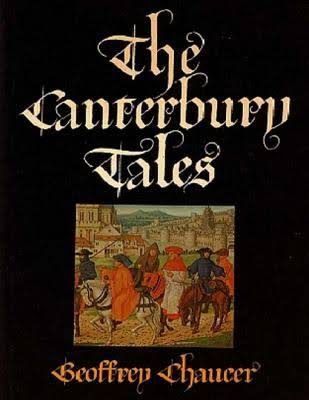

The British Literature we are most familiar with was written in the Neoclassical era. The Neoclassical era encompassed the time period beginning in 1485 at the start of the Renaissance to 1798 - the end of the Restoration and 18th Century. Some of the most important and recognizable books were written in this period, which will be discussed below. Britih literature is important because it continued the break from the of writing religious books to more modern-type stories. Particularly, the novel was invented during this time period, and revolutionized literature. Furthermore, these books were spread around the world through the British Empire. Ultimately, British Literature is very important because it basically made reading what it is today.
| Book | Author | Description |
|---|---|---|
 |
Geoffrey Chaucer | Known as the Father of English Literature, Geoffrey Chaucer is widely considered the greatest English poet of the Middle Ages. Chaucer was a crucial figure in developing the legitimacy of the vernacular, Middle English, at a time when the dominant literary languages in England were French and Latin. He is best known for writing The Canterbury Tales, which is a common highschool reading and one of my favorite books. After a long list of works written earlier in his career, including Troilus and Criseyde, House of Fame, and Parliament of Fowls, The Canterbury Tales is near-unanimously seen as Chaucer's magnum opus. He uses the tales and the descriptions of its characters to paint an ironic and critical portrait of English society at the time, and particularly of the Church. Chaucer's use of such a wide range of classes and types of people was without precedent in English. Although the characters are fictional, they still offer a variety of insights into the customs and practices of the time. Often, such insight leads to a variety of discussions and disagreements to people in the 14th century. For example, although a variety of social classes are represented in these stories and all pilgrims on a spiritual quest, it is apparent that they are more concerned with worldly things than spiritual. Structurally, the collection resembles The Decameron, which Chaucer may have read during his first diplomatic mission to Italy in 1372. |
 |
William Shakespeare | Who has not heard of William Shakespeare and his plays? William Shakespeare was an English poet, playwright, and actor, widely regarded as the greatest writer in the English language and the world's pre-eminent dramatist. He is often called England's national poet, and the "Bard of Avon". His extant works, including collaborations, consist of approximately 38 plays, 154 sonnets, two long narrative poems, and a few other verses, some of uncertain authorship. His plays have been translated into every major living language and are performed more often than those of any other playwright. His most famous work is Hamlet, which I just finished reading. Hamlet is Shakespeare's longest play, and is among the most powerful and influential tragedies in English literature, with a story capable of "seemingly endless retelling and adaptation by others." The play likely was one of Shakespeare's most popular works during his lifetime, and still ranks among his most performed, topping the performance list of the Royal Shakespeare Company and its predecessors in Stratford-upon-Avon since 1879. It has inspired many other writers – from Goethe and Dickens to Joyce and Murdoch – and has been described as "the world's most filmed story after Cinderella". |
Much like Greek literature, British literature has been spread around the world and become a core part of English learning, especially William Shakespeare. Speaking from a multicultural perspective, just to highlight the extent of British and Greek influence, when I went to school in India, I performed parts of both the Odyssey and Romeo and Juliet for my English class, along with more Indian works in my Hindi class, like the Mahabharata. That being said, British literature is different from Greek literature in that Greek literature was more based on either long established mythology or non-fiction, whereas British literature popularized reading for fun and stories that were completely made up.